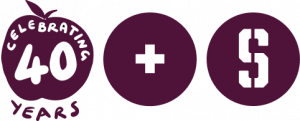We are currently reviewing our policies and practices in terms of disability awareness and access requirements. This is a company-wide review in line with our commitment to equality and diversity.
To take this forward. We worked with Helen Seymour in a freelance capacity as our creative access consultant. Helen is a disabled poet who has performed and headlined at venues across the UK as well as facilitating writing workshops for new and established writers. Get to know Helen in this Artist Spotlight.
Our Ethos
We align ourselves with Scope’s ethos that follows the social model of disability:
“The social model says people are disabled by society, not by their impairments or conditions. We use the terms ‘disabled people’ or ‘disabled person’. We do not use the terms ‘people with disabilities’ or ‘person with a disability’ but we respect other people’s language choices.”
We have a broad understanding of what disability means. This includes physical and mental health conditions, neurodivergence and chronic illness. We appreciate that not all individuals who fit into one or more of those categories will describe themselves as disabled, and will follow their lead on the correct term to use.
This is an ongoing piece of work and we are still learning and implementing ways to be as accessible as possible. One of the main areas we are looking at is the use of access riders, as we understand these are a key tool for people to communicate their access needs effectively.
A Note on Poetry and Trauma
We are aware that poetry, in its nature, can sometimes lead us to think about things that have been traumatic to experience.
While we absolutely see that for some people, this can be a positive, cathartic experience, as our events and workshops are based in creativity rather than in a therapeutic setting, we encourage you to check in with yourself and be confident in your agency to either step back from the exercise, conversation, performance, or leave the space altogether if need be. This is to keep yourself safe.
On the same note, if you are in a group setting, please be mindful about what you are sharing to the group, as it may be triggering to others. Sometimes it may be better, if the subject is particularly sensitive, to share what you learned from the exercise, rather than the content itself. Again, if someone shares something that does unintentionally trigger you, please feel confident in your agency to step back and take a moment.
Please also remember there are free support lines and websites dedicated to helping people who need support. Do get in touch with them if you need to.
